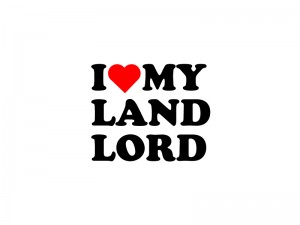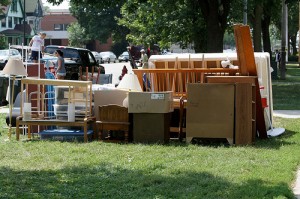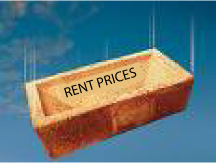Posted by Teresa on May 13, 2009 under Fair Housing Act, Landlord and Tenant FAQs, Landlord Tenant Lawsuits | 

If you are a landlord, reducing risk should be an ongoing part of your business. Nobody likes to think about lawsuits and liability insurance, but the facts are that rental property owners are sued every day. You cannot control every liability that comes with rental property ownership, but you can minimize risk with awareness and planning.
Smart landlords know that keeping their properties in good repair and prescreening tenants are two ways to reduce the liability of owning income property. But there are other areas you may not be aware of that could be putting you at risk. Protect yourself and your assets by controlling your actions in these areas.
Hiring workers: Both federal and state government entities actively search for employers who don’t properly document their employees. Landlords who hire workers fitting the description of “employee,” who then pay them in cash and do not withhold proper taxes, unemployment and insurance, are breaking the law.
Employers who pay “off the books” are subject to back taxes and penalties if they get caught—and the IRS and state agencies are definitely on the lookout for these folks. Your best bet is to hire contractors and repair people who are self-employed, with their own corporations. Keep their business cards and check out their form of ownership. Require proof of insurance, too.
Discrimination in renting: Federal laws make it illegal to discriminate when renting on the basis of race, color, religion, nationality, familial status, age, gender, and disabled status. Your local and state laws may protect additional groups. Even if you do not intend to discriminate, you must be aware of how the laws affect your advertising and rental procedures.
For example, you should avoid advertising your property as being close to a church, because you could be sending the message that you prefer churchgoing tenants. You cannot advertise that your property is “perfect for a nice family,” because you could be seen as discriminating against single people. Avoid asking personal questions as a rule. You cannot rent based on tenants’ marital status, whether or not they have children, or how they choose to worship—or not.
We have covered renting to persons with disabilities in this blog. But while most landlords know that a person in a wheelchair must be accommodated, keep in mind that it is discriminatory to ask about the disability. All disabilities—even those that are not obvious—are protected under the law. Knowing how you must comply and keeping good records are both vital to all landlords.
Improper legal documentation: It may be tempting to use real estate forms that you buy from an office supply store or borrow from a friend, but it’s in your best interests to cover yourself thoroughly before signing any legal documents. Sure, you can download forms from the internet, but have them reviewed by a real estate attorney before you start using them for your tenants.
Be sure to periodically update your forms, too. Outdated forms could put you at risk if new housing laws have been passed. Plus, you may be asking tenants to sign agreements that are unenforceable.
Respecting tenants’ rights to privacy: Landlords must avoid entering properties without proper notice. In most states, it is not okay to stop by unannounced to check on things or make repairs. It’s not worth it if this type of action results in a tenant being released from the rental agreement or is awarded damages.
Reducing your liability and staying out of court will definitely increase your bottom line! So, keep up with changing laws, stay informed, and always ask yourself if there is a better way to do things.
For more landlord resources, including everything you need to know about
tenant screening, turn to
E-Renter.com. You’ll know that you have the best possible tenants when you
prescreen tenants.
Posted by Teresa on May 7, 2009 under Landlord Tips | 

The good news is that at least as far as Google is concerned, far more people express love than hate for their landlords. A Google search for “love my landlord” yields 432,000 results, while “hate my landlord” yields a mere 163,000 results. There’s absolutely nothing scientific about this statistic, but if you’re a landlord, maybe it will make you feel better about yourself!
Combing through hundreds of websites, we compiled our list of popular rants and raves. Maybe it will give you ideas about what to do, and maybe more importantly, what not to do when dealing with your tenants!
The Raves, or Why I Love my Landlord:
- My landlord fixes/replaces things when they need it
- My landlord leaves me alone
- He gives me what I need when I need it
- She hasn’t raised the rent when she could have
- My landlord lets me have my dog/cat/bird/iguana
- She treats me fairly
- He is kind
- He keeps the property clean
- She doesn’t put up with noisy/bad tenants
- My landlord gives me plenty of notice for inspections and repairs
The raves seem pretty simple, don’t they?. Tenants want good communication and to feel respected. They also like to be able to keep pets and to keep renting without rent increases! Of course, going a little beyond the expected is always appreciated. Now for the rants. . .
The Rants, or Why I Hate my Landlord:
- My landlord turns off the water with no notice
- My landlord won’t call for emergency repairs after normal business hours because it’s too expensive
- My emergencies are not my landlord’s emergencies: over 24 hours without water is too much
- Our building/property is a mess
- Things don’t work properly: electrical outlets, stove burners, a/c units, heat
- The electrical system is not safe
- My landlord hires creepy repair/maintenance workers
- My landlord says “absolutely no pets”
- They won’t give me even one day’s grace period on the rent
- My landlord favors some tenants over others
- My property management company came to my apartment four times over the last two weeks without an appointment
- My landlord lets himself into my apartment without my permission
- My landlord makes me feel like I’m being watched
- I have ants/roaches/mice/creepy crawlies in my apartment
- They’re showing my apartment to potential new tenants at all hours
We did find a few more rants than raves. In fact, much of what is out there is not suitable for this blog! Landlords who have good relationships with their tenants would probably never dream of some of these behaviors.
Overall, the landlord lovers seem genuinely happy with their relationships. One said, “I love my landlord. I wish I could find a man like her.”
What type of landlord are you? Are your tenants raving or ranting to the world? Knowing what your tenants like—and what they don’t—can help inspire love, loyalty, and great tenant behavior. And maybe your tenants will soon be sharing all the reasons why “I love my landlord.”
Posted by Teresa on May 5, 2009 under Landlord Tips, Screening and Background Checks | 

Maintaining rental property can be a big challenge for landlords. There is always preventative maintenance that should be performed to keep your rental units in top shape. And then there are the emergency repairs that require your attention now.
If everyone around you clears the room when you start handling power tools, you should definitely hire an expert to help you with rental property maintenance. Even if you consider yourself reasonably handy, an endless to-do list probably means you need some help. Sure, you can save money by performing your own repairs and maintenance, but is that the best use of your time?
Finding the right balance between hiring expert help and breaking the bank isn’t easy. Consider these tips for finding and hiring a professional to help you keep your income property safe and functioning properly.
First, determine whether you need to hire out for individual projects, or if you’d rather enter into a longer-term contract for regular maintenance and repairs.
Research your local builder and remodeler organizations—they’re a great source for contractors and repair people. If you contact companies who cannot help you—for example, the work you need is below their ideal level—ask for a referral to an individuals or subcontractors with excellent track records and experience in rental property maintenance and repair.
Once you have contacted several individual contractors or repair people, conduct your due diligence: make certain they have all the required licenses and insurance in place, meet with them to ensure you can establish a good rapport, and ask for references. Your state licensing entity can provide current insurance and bond information. And don’t neglect to contact their references!
Set your job specifications and obtain proposals from each contractor. Award the project based on pricing, experience level, and references, keeping in mind the lowest price may not be the best choice. Work with the firm or individual you feel most comfortable with.
Be sure you have a clear understanding about payments and contract details. Do not fall prey to a contractor who requests payment in full before the job begins. Deposits and progress billing are reasonable, depending on the size of the job. You should withhold at least 10% of the contract price until the entire job is completed to your satisfaction and specifications. And make sure they clean up the job site, too!
And finally, be sure to properly supervise your repair and maintenance people. Do not allow anyone to have unlimited, unsupervised access to your rental property. For more security, consider background screening checks on any individuals you hire to perform work on your behalf. Mitigate your liability and keep your tenants safe by knowing exactly who you are hiring.
For more landlord resources, including everything you need to know about
tenant screening, turn to
E-Renter.com. You’ll know that you have the best possible tenants when you
prescreen tenants.
Posted by Teresa on April 29, 2009 under Landlord Tips | 
 Are you thinking, “it’s a little late for tax advice?” Well, read on, because this information is intended to make April 2010 a little easier to face by helping you save money. Remember, we’re not tax professionals, so check with your tax advisor or a qualified tax planner for the details about what you can and cannot deduct. In general, track and keep good records of these expenses so you can deduct them from your rental income next year!
Are you thinking, “it’s a little late for tax advice?” Well, read on, because this information is intended to make April 2010 a little easier to face by helping you save money. Remember, we’re not tax professionals, so check with your tax advisor or a qualified tax planner for the details about what you can and cannot deduct. In general, track and keep good records of these expenses so you can deduct them from your rental income next year!
Interest: From mortgage interest on your rental property, to credit card interest on purchases made on behalf of the property, most interest is deductible. If you don’t already, consider acquiring a separate credit card for your rental property to make record keeping easier.
Advertising: All expenses to advertise your rental property are deductible. This includes newspaper and online rental ads, as well as website expenses.
Professional Fees: Legal and accounting expenses, as well as expenses for professional management, advertising and web design, or cleaning and maintenance help can be deducted.
Depreciation: You cannot deduct the full cost of the rental home in the year it is purchased. Instead, an equal portion is deducted each year over 27.5 years.
Travel: Local and long-distance travel related to your rental property is deductible. If you have a vehicle dedicated only to the rental property, then all expenses (gas, insurance, repairs, and maintenance) are deductible. If not, then keep good records for property management-related trips. Record the mileage for visits to your rental property to collect rent, inspect, or make repairs. For long-distance travel, track mileage or airfare, lodging, and meal expenses. To avoid any problems with the IRS, don’t claim deductions without the receipts to back them up!
Home Office: Expenses related to maintaining a home office, workshop, or storage areas to manage your rental property are deductible. There are minimum requirements to meet, so be sure to follow your tax professional’s guidelines.
Theft or Casualty Losses: In case of theft, vandalism, or events like floods or fires, a portion of your loss may be tax deductible. Your insurance coverage will likely impact the amount you can deduct.
Insurance: Speaking of insurance, all premiums you pay to cover your property are deductible, including fire, theft, flood, and liability insurance.
Miscellaneous Expenses: Don’t forget to track expenses like office or household supplies, condo fees, utilities paid on behalf of your tenants, snow removal, landscaping, taxes, and repairs.
Be sure to ask your tax professional about all of these deductions—but start saving those receipts and keeping good records now. You’ll be very glad you did at tax time in 2010!
For more landlord resources, including everything you need to know about
tenant screening, turn to
E-Renter.com. You’ll know that you have the best possible tenants when you
prescreen tenants.
Posted by Teresa on April 27, 2009 under Landlord Paperwork and Forms, Landlord Tips | 

Photo Courtesy of flickr
Our last post covered a few tips for making tenant move-out day a little less stress-inducing. Today we’ll cover a couple other helpful procedures you may not be following, and we’ll talk about the elusive definition of “ordinary wear and tear.”
If your experience with the tenant has been positive, maintain a good relationship by offering to provide your soon-to-be-former tenant with a letter of reference. A good recommendation is very helpful, whether they are moving to another rental or buying a home, and your tenant will probably appreciate the offer. They may even do an extra-good cleanup job on your property—and they’ll be sure to tell their friends and family about it. Good publicity is always good to have.
The Move-Out Inspection
It’s best to schedule the final walk-through after the unit is completely vacant, and the tenants have turned in their keys. Then, there is no possibility of additional damage after the official inspection is completed. The tenant should be present. Make sure you work off of the original Check-In Sheet with the tenant’s signature. Compare each item on the checklist with its condition upon move in day. The tenant may claim to have no knowledge of how damage occurred (or that there even was damage); the fact remains that they are responsible.
Once the inspection is completed, inform the tenant that you will have an estimate for the damages in a timely manner. Most tenants are anxious to get their security deposit back; if you indicate the full deposit is in jeopardy, they might offer to do some more cleaning or repair damages. Remember that you are under no obligation to allow this. However, if you know the tenant’s ability and feel they are capable of completing repairs, you may opt to give them a second chance. Keep in mind that a sloppy paint job or improper repair work will cost you more in the long run!
Defining “Ordinary Wear and Tear”
You are entitled to charge tenants for damages beyond ordinary wear and tear. It’s your job to know the difference between “wear and tear” and serious damage that can be deducted from a tenant’s security deposit.
The standard definition of “ordinary wear and tear” in most states is deterioration or damage to the property expected to occur with normal usage. There are no concrete rules, however, so it’s a tricky judgment call in most cases. Here are some examples:
- Smudges on walls and switch plates: Ordinary wear and tear
- Crayon marks on walls: Damage
- A few small tack or nail holes: Ordinary wear and tear
- Numerous nail holes requiring patching and painting: Damage
- Carpet worn thin from use: Ordinary wear and tear
- Carpet stains or bleach spots: Damage
- Dusty or dirty blinds: Ordinary wear and tear
- Bent or missing blinds: Damage
Making Deductions from Security Deposit
First, make sure that your paperwork is accurate, detailed, and thorough. An incomplete list of charges is asking for trouble. Your tenant could decide to challenge the deductions or even instigate court action. Explain how damage is beyond ordinary wear and tear. For example, just listing “Pet Damage, $50” is not adequate. You must provide details, such as cleaning or replacement receipts. Be thorough and avoid the hassle of fighting it out with your tenants. Here are a few guidelines to follow:
- Name each specific item damaged on a separate line.
- Indicate the exact location of the item.
- Detail the damage, including type and extent. Use specific language like minor scratch, excessive staining, five burn holes.
- Detail the repair completed or that the item required replacing.
- Include repair estimates or replacement receipts for each item.
All tenants move out, but following established procedures and keeping communication open can make it a much easier experience for you and your tenants!
For more landlord resources, including everything you need to know about
tenant screening, turn to
E-Renter.com. You’ll know that you have the best possible tenants when you
prescreen tenants.
Posted by Teresa on April 22, 2009 under Landlord Paperwork and Forms, Landlord Tips, Rents and Deposits | 

Photo Courtesy of flickr
Tenants move out. That’s a reality that every landlord and property manager faces. And when working with all types of tenants, it follows that you’ll have all kinds of move-out experiences—some good, some very bad. Here are a few things to look out for, and some procedures you might find helpful.
Preparing for Move-Out Day
You should really have started preparing for move-out day when your tenant moved in. If you were proactively communicating with your tenant from the start, you already completed a Check-In Sheet. Establishing the condition of the unit upon signing the lease, then using the same list to evaluate on move-out day, is a simple way to track any damage and appropriate charges.
Be Consistent
Maintaining clear communication and working from established procedures are two themes we visit often in this blog. If you have standard procedures and forms in place, every interaction with your tenants will be easier on both parties—and will keep you covered from a legal standpoint as well. Remember that you do not want to be seen as discriminating against any tenants, so you must require the same paperwork and notices from all.
Security Deposit Disputes
This is the number one problem in landlord tenant relationships. Many tenants have a fear of not receiving their security deposit back. If you’ve been inspecting the property on a regular basis, then your tenant has had ample opportunity to point out any problems that could affect their deposit. Still, your definition of “ordinary wear and tear” could vary greatly from your tenants’. Be fair, but firm, take reasonable deductions and provide a thorough accounting of the security deposit. Return the balance promptly, and comply with all local laws covering interest and time limits.
Written Notice
If your tenant mentions in passing or calls specifically to inform you they’re moving, let them know you require written notice. Remind them that the rental agreement states this clearly, and that you need to be sure all are in compliance with the lease and with the law. Provide them with a simple Tenant’s Notice to Vacate Rental Unit form, covering the property address, names, dates, reason for moving, and allowing you access to the unit to inspect and show the unit to prospective tenants or repair people. Do not allow the tenant to skip giving you notice in writing—it brings too many possibilities for problems!
Next post: In Tenants Moving Out, Part II, we’ll explore some additional suggested procedures, the Move-Out Inspection, and help define “ordinary wear and tear.”
Posted by Teresa on April 16, 2009 under General, Housing Trends | 

The apartment vacancy rate for the top 79 US markets reached an average 7.2% in the first quarter of 2009, according to Reis Inc., a New York research firm. This is a full percentage point increase from the previous two quarters. Reis predicts rents down as much as 2% for the year, and apartment vacancy rates above 8%.
Increased perks, like lower or free rents, have not helped the situation. In the past, these concessions by property managers led to lower vacancies—but not now. Part of the problem is an oversupply, as unsold condominiums are converted to rental properties. Plus, continued rising unemployment, coupled with the downturn in housing markets, are not bringing former homeowners back as renters. Many are renting their homes, and are now property managers themselves.
Where are all these foreclosed homeowners living? Good question. It’s possible there are more folks living with family or friends. In addition, cash-strapped homeowners are renting rooms to boarders. Packing existing housing with more bodies seems to be the nationwide trend.
In LA County, 41,000 people moved out of an apartment in 2008, while only 29,000 moved in during the last five years. But not all areas are being affected equally. Well-run properties in real estate markets where people want to live are holding steady, while areas of overbuilding are hurting.
Other areas with big increases in vacancy rates in Q1 2009 include Austin, TX, from 7.5% to 9.2%; Fairfield County, CT, from 4.3% to 6%, and Knoxville, TN, from 5.3% to 7%. [Source: the Wall Street Journal.]
It looks like for the remainder of 2009, renters will find more choices within their budgets, while many landlords will be forced to continue cutting rents in an effort to attract new tenants or keep the ones they have. Well-positioned rental property investors could take advantage of unprecedented buying opportunities in certain markets.
For more landlord resources, including everything you need to know about
tenant screening, turn to
E-Renter.com. You’ll know that you have the best possible tenants when you
prescreen.
Posted by Teresa on April 9, 2009 under Landlord Paperwork and Forms | 
 Keeping files in perfect shape is an elusive goal for most of us. But for landlords and property managers, a reliable record-keeping system is a must. If your strengths lie in areas other than document tracking, you may want to consider a property management company, rather than managing income property yourself.
Keeping files in perfect shape is an elusive goal for most of us. But for landlords and property managers, a reliable record-keeping system is a must. If your strengths lie in areas other than document tracking, you may want to consider a property management company, rather than managing income property yourself.
Rental property owners who manage things themselves will benefit from strong record keeping skills. Start with a basic filing system, with separate sections for each rental property you own. Your local office supply store will be full of options, from simple accordion folders, boxes, and plastic tubs, to locking filing cabinets. When you outgrow your simple system, it’s a good idea to invest in fireproof, locking cabinets.
All property ownership documents, such as purchase offers and contracts, appraisals, loan documents, and insurance policies, should be accessible and protected. Store these items separately from the rental paperwork for the property. Keep accurate records of any incidents or claims against your insurance coverage.
Track income and expenses manually, or on spreadsheets. Or consider one of the many financial management or property management software packages available. Software varies in price range and features; check out a few to see which works best for you; or ask around to see what other landlords are using. Reports, correspondence templates, income and expense tracking, and other features may make a software package a good investment for you. But even if you track all your expenses electronically, paper receipts are still required for tax purposes. Keep them in expense folders for each property.
You’ll also want folders for all rental and tenant documentation. These include maintenance records, tenant applications, rental agreements, legal notices, and tenant correspondence. You never know when you’ll need proof of notices, complaints, or maintenance. If you are involved in a court dispute with a tenant, your good record keeping will definitely pay off. You don’t want to be in a situation where it’s your word against your tenant’s!
Rental property records should be maintained for three to five years, depending on the state where you live and/or own property. Property purchase and capital improvement records should be kept for as long as you own the property. Any records pertaining to injuries, evictions, or other legal matters should be maintained indefinitely.
Setting up and maintaining an efficient record-keeping system will pay off again and again. If you find yourself in court with a tenant or in an IRS audit, you’ll be grateful that your records are well organized!
For more landlord resources, including everything you need to know about
tenant screening, turn to
E-Renter.com. You’ll know that you have the best possible tenants when you
prescreen.
Posted by Teresa on March 31, 2009 under Housing Trends, Landlord Tips, Tenant Credit Checks | 

Falling Prices no Cause for Panic
The heated rental market of the past few years is definitely over. Rent increases followed housing price increases to unsustainable levels. Reports from around the country show that rents continue to fall.
In New York City, the biggest drop, 8% over last year, was in the category of studio apartments in doorman buildings. In a city like New York, where rents are excessively high when compared to the rest of the country, that’s significant. Renters in NYC are used to numbers like $3,395 for one-bedroom apartments with a doorman (but you can lose the doorman and pay only $2,632). It’s a tough, competitive market—but people are finding more rental deals than ever right now.
Renters who signed leases at the height of the bubble are more interested in investigating their alternatives—including moving—than before. Most folks are not willing to pay more, but they are looking for—and finding—similar properties for less money.
Other renters are downgrading to cheaper properties just to save money. With job security at a new low for many working people, the opportunity to save several hundred dollars a month only makes sense. Thrift is in, and the ability to sock away money in savings appeals to people who never considered it before.
What could this mean to landlords and property managers? Expect to work a little harder to secure and keep good tenants. It’s a renter’s market, but there are still good, solid tenants looking for rental properties. Make sure your property is in top condition and advertise it well.
In this market, current tenants might ask for rent reductions at lease renewal time. To avoid reducing the rent, think creatively of other ways to keep them. Perhaps you can pay for certain utilities, or upgrade the cable package. If you have a vacancy elsewhere, upgrade a good tenant to a nicer property. A fresh coat of paint or new carpet could be perks a tenant would stay for.
Some landlords, desperate to keep properties filled, are accepting tenants with bad credit. This “I’ll take anyone” approach is a mistake. Tenants with bad credit could cost you much more money over time than you’ll lose by waiting for a solid tenant. And in this economy, a low credit score is likely to get worse, not better. There is no better time to thoroughly check your prospective tenants’ backgrounds and credit histories.
The rental market will swing back up again. Rents are often tied to jobs, and when job numbers increase again, look for signs that rents are on the increase. Until then, be patient, don’t panic, and plan carefully. Consider new ways to keep your properties leased; be open minded to new ideas and to all requests from your tenants. But remember, you are under no obligation to let tenants out of a binding lease, just because they can rent somewhere else for less.
For more landlord resources, including everything you need to know about
tenant screening, turn to
E-Renter.com. You’ll know that you have the best possible tenants when you
prescreen.
Posted by Teresa on March 30, 2009 under Landlord Tips, Tenant Screening & Background Checks | 

An Attempt at a Two-For-One ID? Not Smart!
Fake IDs are not just used by underage drinkers anymore. Smart landlords require prospective tenants to provide identification and make photocopies for the tenant’s file. But taking these important steps won’t tell you if the driver’s license or other ID card presented is real. What if the new tenant who just signed your lease is not who they claim to be?
Who would falsify their identification? For starters, anyone with a criminal history, bankruptcy, or prior evictions to hide. Then there are those with bad credit or problem rental histories, plus underage kids who can’t legally sign your lease. And finally, there are the thousands of people in your community without legal residential or work status. Any of these folks would have reason to falsify their identification. The list of potential tenants who don’t want you to know their true identity is as long as process to evict them will be.
False identification is a big business. Both large-scale groups working internationally and individuals in your neighborhood keep this multi-billion dollar business booming. High-tech graphics software can easily pump out official-looking state IDs, driver’s licenses, Social Security cards, and even Department of Homeland Security Permanent Resident Alien cards.
Why not avoid the problems that come with fake IDs up front? Ensuring that the person you’re renting to is actually who they claim to be is easy with tenant screening. This service will not only screen out criminals and problem tenants, it will also ensure you that the identification presented is legitimate.
Make your life a little easier by using qualified tenant prescreening services!










